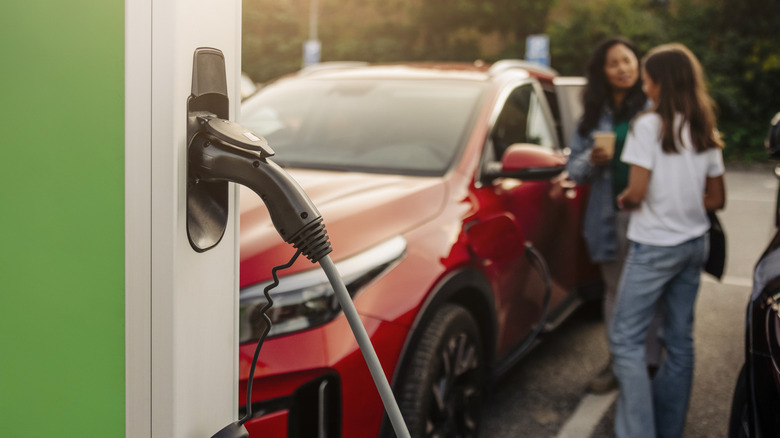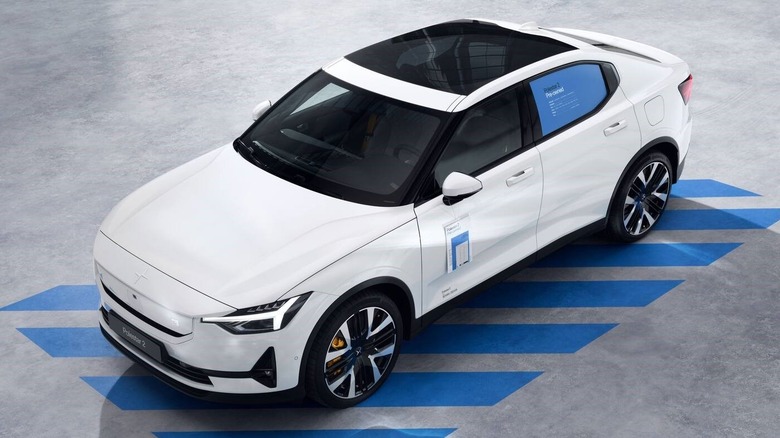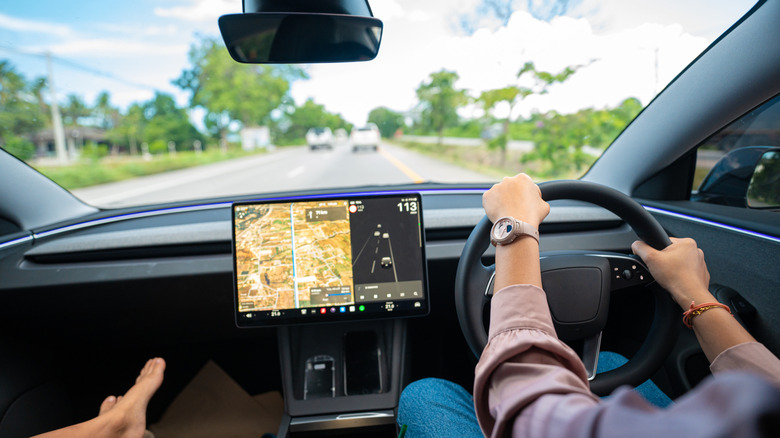How To Verify A Used EV's Battery Health Before Buying It
While market demand for new EVs has been dampened thanks to the uncertainty surrounding tariffs, the interest in used EVs has seen a sharp rise. Data from Cox Auto showed a 60.6% increase in used EV sales in April 2025 compared to 12 months earlier, and that increased demand has led to renewed interest in EV battery degradation.
The good news is that modern EV batteries degrade less than their predecessors on average. A 2024 study by Geotab found that the average rate of EV battery degradation is around 1.8% per year, down from 2.3% per year in 2019. The current rate of degradation means that they should remain at healthy levels for around 20 years on average. As automakers continue to refine their battery technology, this degradation might reduce even further for new cars.
The bad news is that it isn't always easy to get an accurate representation of a battery's state of health before you buy a used EV. Tesla is one of the most upfront brands in this regard, letting owners or potential buyers see the estimated battery health via the car's controls app. Prospective buyers can tap Controls, then Service, and then Battery Health to get a readout. A more comprehensive Battery Health Test can also be carried out, but it will take around 24 hours to complete and require the car to be hooked up to a suitably fast home EV charger.
EV batteries can be tested by a dealership
Tesla's 24-hour test is likely to be a better way to verify the battery's health than the readout on the Battery Health menu, as it involves discharging and charging the battery, which is regarded as the best way to get an accurate reading. However, the brand still deserves credit for displaying an instant readout at all.
Other automakers aren't quite as forthcoming with their battery health metrics. Owners of EVs from popular brands like Ford, VW, and Chevrolet can all track their cars' battery health by plugging a scanner into the OBD (or On-Board Diagnostics) port once they've bought the car. There are threads on owners' forums for many popular models that compare battery health data over time. These threads can be helpful for used EV buyers, as they're a good way to estimate how much degradation a typical example of a particular make and model year of EV is likely to have experienced.
To compare a used EV's battery health to those owner-reported average figures, buyers can ask the selling dealership to carry out a battery health check. In most cases, the dealer should then be able to print out a report with the total dischargeable energy in kWh and the estimated percentage of degradation. Some dealers will charge for the service, but other dealers, like Polestar conduct, battery checks on some of their approved used cars for free.
What other methods are there for finding information about battery health?
Buyers who prefer to avoid dealerships could also bring along an ELM327 OBD-II adapter, plug it into the car's OBD port, and use an app like CarScanner to generate an SoH (state of health) reading. This is a quick and affordable option, but it isn't necessarily the most accurate, as owners report that battery management systems' SoH readings vary based on temperature and whether the battery has recently been fully charged.
The used EV market is still developing, and for now, methods for testing battery health can vary significantly between different manufacturers. It's potentially worth asking a dealership about their testing process for verifying a battery's health — if they solely rely on an SoH reading from the battery's management system, you might prefer to use an OBD-II scanner to obtain the number yourself.
Whether or not a thorough battery health test is worthwhile comes down to both personal preference and the age and mileage of the car you're buying. A nearly new EV is unlikely to be suffering from battery degradation beyond the expected average, but for an EV towards the end of its usable life, a few percentage points difference in battery health can potentially make a big difference to its expected lifespan. If you're looking for the latter, verifying battery health as accurately as possible is especially important to ensure that you're paying a fair price for the car considering its condition.


